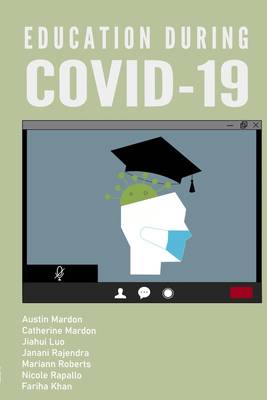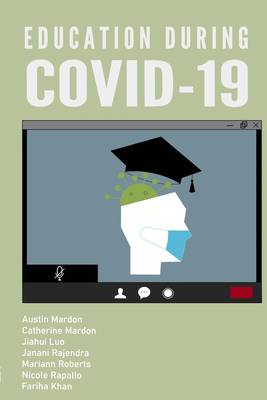
- Afhalen na 1 uur in een winkel met voorraad
- Gratis thuislevering in België vanaf € 30
- Ruim aanbod met 7 miljoen producten
- Afhalen na 1 uur in een winkel met voorraad
- Gratis thuislevering in België vanaf € 30
- Ruim aanbod met 7 miljoen producten
Zoeken
€ 33,95
+ 67 punten
Omschrijving
The year 2020 has undoubtedly been one of the most eventful years, to say the least. A virus outbreak that started in Wuhan, China in December 2019, quickly escalated into a global pandemic by march 2020. This outbreak impacted several industries among which was the education industry. Considerable modifications were abruptly made in order to keep up with the chaos of the pandemic. Many educational institutions were shut down in order to reduce the spread of the virus and in hopes to flatten the curve. As this pandemic was an unprecedented circumstance, many educators and students were unprepared to adjust to the new method of education: the virtual classroom. This book goes into detail and analyzes various aspects of education during COVID-19. Further, the academic and psychological consequences of education during COVID-19 are presented, as well as methods to help combat educational challenges faced during this difficult time.
Specificaties
Betrokkenen
- Auteur(s):
- Uitgeverij:
Inhoud
- Aantal bladzijden:
- 96
- Taal:
- Engels
Eigenschappen
- Productcode (EAN):
- 9781773691589
- Verschijningsdatum:
- 26/10/2020
- Uitvoering:
- Paperback
- Formaat:
- Trade paperback (VS)
- Afmetingen:
- 152 mm x 229 mm
- Gewicht:
- 149 g

Alleen bij Standaard Boekhandel
+ 67 punten op je klantenkaart van Standaard Boekhandel
Beoordelingen
We publiceren alleen reviews die voldoen aan de voorwaarden voor reviews. Bekijk onze voorwaarden voor reviews.







